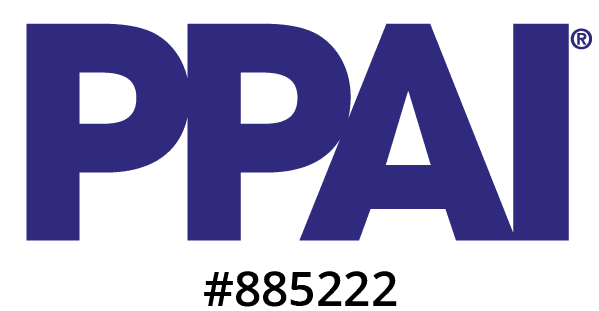Promotional product distributors often rely on outsourced logistics so they can focus on sales and marketing. Efficient fulfillment is crucial for customer satisfaction, as poor delivery experiences can drive customers away. Understanding the landscape of third-party (3PL) and fourth-party (4PL) logistics is key to choosing the right partner.
Understanding 3PL Fulfillment Services for Promo Distributors
A 3PL (third-party logistics provider) is an external company that handles logistics operations for businesses. Typical 3PL services include warehousing, inventory storage, order picking/packing, and shipping on behalf of the client. Many 3PLs also offer value-added services such as kitting (assembling kits), light product assembly, and inventory management to streamline the supply chain.
By outsourcing fulfillment to a 3PL, companies can offload the complexity of distribution and delivery. The 3PL acts as the backend warehouse and shipping department for the business, managing everything from receiving stock to delivering orders to end-customers. This allows the distributor to save on operating their own warehouses and benefit from the 3PL’s logistics expertise and volume shipping rates.
Challenges of Using Traditional 3PLs for Company Stores
Rigid, One-Size-Fits-All Service: Many traditional 3PLs operate on highly standardized processes designed for efficiency and scale. As they grow, some 3PLs become like “mini-Amazons,” optimizing for uniform high-volume operations and leaving little room for flexibility. This rigidity means distributors can struggle to get special requirements accommodated – the 3PL might insist on doing things one set way that doesn’t fit every distributor’s business model.
Lack of Customization: Standard 3PLs often do not support custom packaging, inserts, or other branding touches without significant extra fees or hassle. Even simple requests like using custom-branded boxes, specialty packing materials, or adding marketing inserts can be discouraged or charged as costly add-ons. If a 3PL “doesn’t support branded packaging or special touches” for the unboxing experience, it limits a distributor’s ability to deliver a memorable experience to their clients’ end customers. This lack of customization can be a major pain point for promotional marketers who need every shipment to reflect their brand or campaign.
Poor Handling of Hybrid Fulfillment Models: Promotional distributors increasingly deal with hybrid orders – for example, an order might combine inventory items (pre-produced products in stock) with print-on-demand or decorated-to-order items (like a personalized apparel item). Most 3PLs are not set up to handle production and fulfillment in tandem. They excel at shipping stocked products, but coordinating an on-demand manufacturing step (such as printing a custom logo on a shirt) alongside regular inventory pick-pack is outside their usual process. Distributors often end up having to split such orders or manage separate workflows.
International Fulfillment Complexities: Reaching international customers is another challenge when using a domestic-focused 3PL. If the 3PL has no overseas warehouses or partners, distributors must ship internationally from a single country facility, leading to long transit times, high shipping costs, and potential customs headaches. Lacking a multi-node fulfillment network (multiple strategically located warehouses) becomes a barrier as the business grows globally. For example, without multi-node fulfillment, expanding to new regions is less efficient and more expensive. Distributors may find themselves juggling multiple 3PL relationships in different countries to get products closer to customers, which adds operational complexity.
Misaligned Metrics in B2B Programs: Many 3PLs built for B2C e-commerce struggle to understand the operational goals of company store programs common in the promotional products industry. In these programs, inventory turnover isn’t always the key success metric. Distributors might manage a large number of SKUs held in inventory with relatively low order volume per SKU – particularly in programs serving franchise systems or enterprise clients. The value comes from just-in-time availability and long-tail SKU access, not rapid turnover. This nuance can be lost on 3PLs who push for minimal SKU counts and high movement, leading to misaligned expectations and poor support for company store models.
What is a 4PL?
A 4PL (fourth-party logistics provider) is often described as a logistics integrator or lead logistics partner (LLP) that manages the entire supply chain for a client, rather than just handling warehousing and deliveries. In other words, a 4PL takes on a broader strategic role – overseeing multiple logistics activities and even coordinating multiple 3PLs – to ensure the client’s end-to-end supply chain runs smoothly. A 4PL provider becomes a single point of contact for the whole logistics operation, accountable for everything from transportation and warehousing to data analysis and optimization of the supply chain.
The primary difference is scope and responsibility. A 3PL focuses on order fulfillment execution (storing inventory, picking and shipping orders), whereas a 4PL manages the entire logistics process on behalf of the client. For example, a 3PL operates the warehouses and trucks, while a 4PL might coordinate several 3PLs, negotiate with carriers, handle logistics strategy, and provide analytics to the client. In practice, this means with a 3PL you as the distributor work directly with the warehouse operators, but with a 4PL you work with a higher-level partner who then manages those warehouse operators for you. A 4PL often does not own physical assets (warehouses, trucks) – instead, it contracts and orchestrates other providers’ services. The 4PL’s value is in being an impartial, strategic manager that optimizes the supply chain across all moving parts, rather than just one link of the chain.
It’s worth noting that “4PL” can mean slightly different things in practice. Some companies use 4PL to refer to any logistics partner that takes on a consultative, overarching role in supply chain management. Others reserve the term for providers that act purely as network orchestrators managing multiple subcontracted 3PLs. In general, the common theme is that a 4PL is a single interface between the client and a complex supply chain, offering higher-level management and integration of services. The 4PL often serves as a “trusted advisor” that the client relies on for strategic logistics decisions, in contrast to a 3PL which is typically a tactical service provider.
Strategic Supply Chain Management for Promo Businesses
There was a period of time, while I was on the distributor side, when I was looking for a 4PL partner as described above. Recently I was introduced to a company, here in our industry, that fits the bill. I was so excited to find someone who understood the unique logistical challenges of promo distributors—hybrid orders, international fulfillment, and the nuances of company stores. That company is Xpedite. This isn’t a sponsored mention—just a real example of a partner operating at the intersection of flexibility and strategy.
Xpedite Fulfillment is a logistics partner that positions itself between a 3PL and a 4PL, offering a blend of hands-on fulfillment and tailored, flexible service. Essentially, Xpedite functions as an end-to-end fulfillment agency for promo distributors – providing the physical warehousing and distribution like a 3PL, but also stepping into a consultative, solution-finding role more akin to a 4PL. The company emphasizes creating custom solutions for each client rather than a one-size-fits-all service. This boutique, personalized approach means Xpedite can adapt to the wild scenarios our clients bring us that traditional 3PLs might not accommodate. At the same time, Xpedite has built a broad network and technological infrastructure that allows it to scale and handle logistics across regions similar to a larger 4PL. In short, Xpedite combines personalized service with a powerful network, aiming to give distributors the best of both worlds – the reliability of a 3PL and the strategic flexibility of a 4PL.
Full-Service Fulfillment with Flexibility: Unlike a rigid 3PL, Xpedite offers “complete back-end fulfillment solutions” tailored to the client. They handle standard 3PL tasks – warehousing inventory, managing orders, same-day pick/pack/ship – but will also accommodate special requests and custom workflows. For example, Xpedite can execute one-time projects such as assembling complex kits, preparing gift baskets, or managing a direct mail campaign mailing. They can be as “visible or invisible to your clients as you choose,” even white-labeling their services if needed. This flexibility in process and branding is something most big 3PLs do not offer.
Global Reach for International Needs: Xpedite has locations throughout the U.S. and Canada, and a network of global partners to facilitate international fulfillment. This means a promo distributor can rely on Xpedite to ship internationally with in-country or regional distribution, rather than always sending everything from a single U.S. warehouse. They have partnered facilities in places like Europe and Canada to handle local warehousing and delivery, enabling faster shipping times and local postage rates for overseas customers. For the distributor, this removes the burden of managing multiple 3PLs in different countries – Xpedite coordinates the global logistics on their behalf, functioning somewhat like a 4PL by overseeing those international moves.
Hybrid Orders (Inventory + Print-On-Demand): A standout capability of Xpedite is supporting hybrid fulfillment models that mix stocked products with on-demand production. Xpedite has in-house digital printing and production services integrated with their fulfillment operations. This means if a distributor sells products that require printing or embroidery on demand (e.g. personalized apparel), Xpedite can produce the item and ship it along with other inventoried items in the same order. They have experience contracting custom screen-printing and embroidery for apparel, effectively merging production with fulfillment under one roof. For promo distributors, this solves a major challenge – they don’t need separate vendors for printing vs. shipping, and customers get one unified package.
Custom Packaging & Branded Experiences: Xpedite understands the importance of branding in promotional shipments. They are willing to accommodate custom packaging, inserts, and special kitting instructions that enhance the unboxing experience. Because they approach each client’s needs individually, they can use custom-branded boxes or add marketing collateral as required, whereas many warehouse providers avoid such extras. As noted earlier, packaging can be a huge factor in customer experience, so having a partner like Xpedite who will do things like custom gift wrapping, branded tape, or inserting brochures is extremely valuable to distributors. This level of customization and attention to detail helps promo companies deliver a memorable experience to recipients – effectively extending the marketing impact beyond the product itself!
Batching & Special Project Support: Beyond day-to-day orders, Xpedite is geared to help with special projects and batch fulfillment that promotional campaigns often require. Need to assemble 500 welcome kits for a corporate event? Or kit and ship a subscription box of swag to thousands of subscribers at once? Those are the kinds of projects Xpedite can handle. Xpedite’s services include “kit assembly” and they’re open to one-off projects like assembling direct mail packages or gift bundles. They can batch orders or shipments as needed – for example, consolidating multiple items into a single custom kit – and ship them according to the client’s schedule (even coordinating release of batches to align with event dates or marketing calendars). This project-based flexibility acts as an extension of the distributor’s team during major promotions or seasonal campaigns.
At Xpedite, the team sees themselves as more than a service provider—they act as a true logistics operations partner. Whether it’s supporting company store programs, managing drop ship campaigns, or executing complex kitting projects, Xpedite takes a hands-on role in helping distributors succeed. Their flexible model allows for a blend of on-demand production and in-stock inventory management, giving distributors better control over program performance and costs. This operational partnership mindset sets them apart from traditional vendors and helps distributors adapt to their clients’ changing needs.
Q&A with Laura from Xpedite
To further explore how Xpedite addresses these pain points, we asked Laura Harper, Xpedite’s Owner/President, some questions.
- One partner with endless solutions vs fitting into a box of set capabilities.
- Most 3pls anymore don't want or understand the promo industry. They want barcoded products which is never going to happen in this industry. We already know who out there accepts and is good with working in this industry. So it saves them a LOT of time having to search and try out places to only fail.
- Flexibility and adaptability to their needs.
- technology that can be integrated once then routed to various locations vs separately having to integrate which can get costly.
- We do offer Hybrid solutions for POD as well
- We can work with your system to only receive the orders for stocked inventory if that is their choice.
Just as a few types of things that might be challenging to a standard 3PL but are normal for us.
- Company store set ups in Europe, India, Australia for global distribution.
- Kitting projects in multiple locations globally for worldwide distribution to employees.


